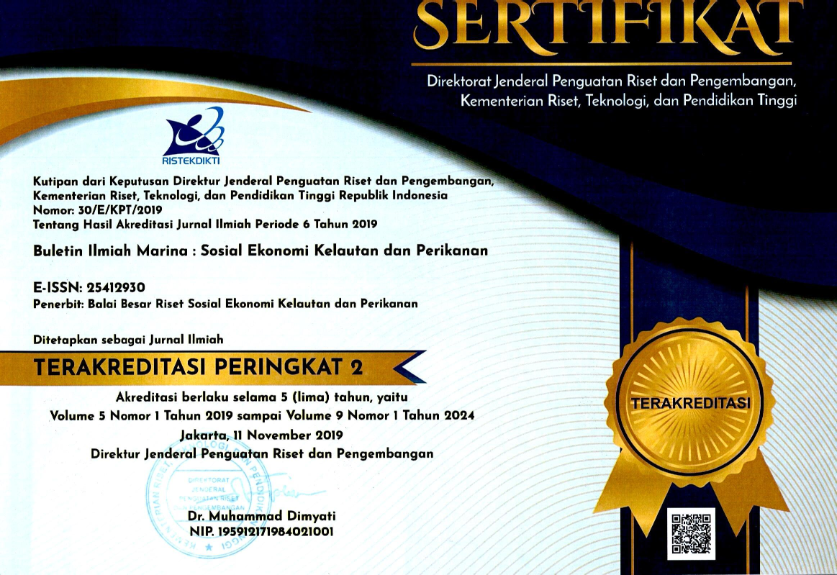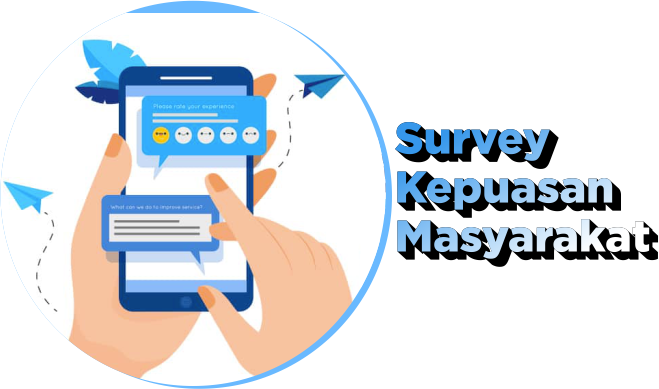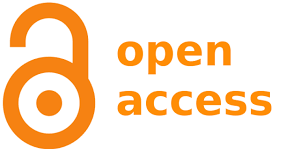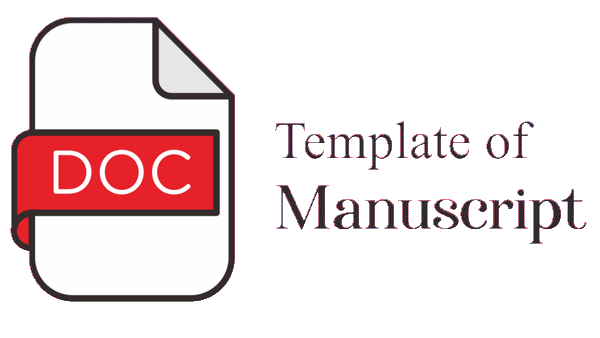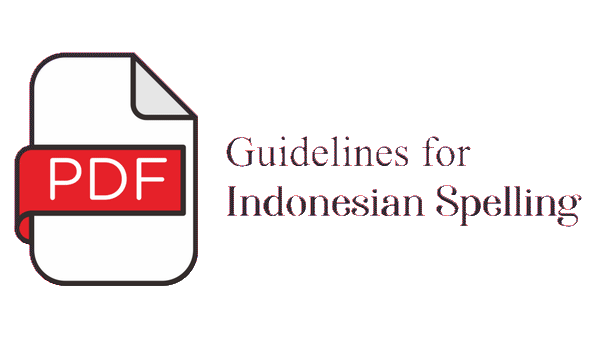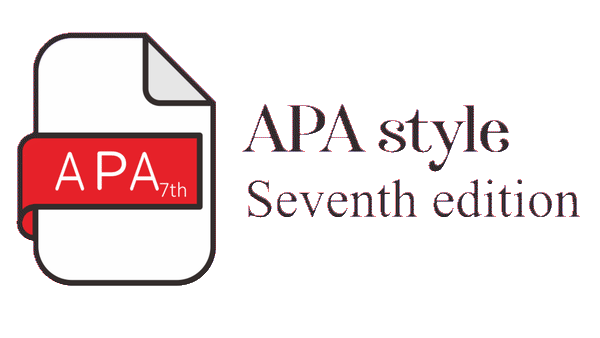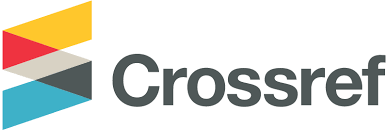- Focus and Scope
- Section Policies
- Peer Review Process
- Publication Frequency
- Open Access Policy
- Archiving
- Article Withdrawal
- Publication Ethics
- Copyright Notice
- Repository Policy
- Archiving
- Plagiarism Screening
Focus and Scope
Buletin Ilmiah Marina Sosial Ekonomi Kelautan dan Perikanan is a scientific journal containing manuscripts originating from ideas, opinions, field findings related to actual issues in the socio-economic field of marine affairs and fisheries. It publishes papers on socio-economic aspect that include, but are not limited to, the following fields:
1. Management Dynamic of Marine and Fisheries Resources
(economic valuation, bioeconomic, environmental economic, resources management, management conflict of marine and fisheries resources)
2. System of Business, Marketing and Trading
(economic of marine and fisheries household, marine and fisheries business, marketing management, trading, macro economic, export and import of marine and fisheries product)
3. Social and Institutional
(Sociology, anthropology, law, politic, institutional)
Section Policies
Editorial
Articles
Peer Review Process
Every article that goes to the editorial staff will be selected through Initial Review processes by Editorial Board. The initial review included an examination of compliance with the scope and author guidelines. Then, the article will be sent to the Peer Reviewer and will proceed to the next review stage by the Double-Blind Peer Review Process. Editorial Board will seek additional opinions such as adding the third reviewer when necessary. The article will also be checked for its plagiarism indication using Ithenticate.
Section Editor is about the main handling editor. Section Editor reporting to the Editor in Chief, a Section Editor (or Associate Editor) manages the progression of articles from submission to publication by communicating with authors, peer reviewers, and copy editors regarding article reviews and revisions. Will often have the final decision whether a submission is accepted or rejected.
The final decision of article acceptance is made by the Editor in Chief (together with Editorial Board in an editorial board meeting) considering the reviewer's critical comments. The articles that require revisions will be returned to the author for revision. The editor will issue an LoA after the revision is declared appropriate. Articles that are declined will also be immediately informed to the author.Publication Frequency
PUBLISHING TIME
The Editorial Team is responsible for deciding which articles to be published by conducting a series of review processes. The process of validating the manuscript and the importance of the article for researchers and readers are also considered in the decision to publish the manuscript.
The process of reviewing, revising, and validating manuscripts requires different weeks from one manuscript to another, depending on the condition and feasibility of the manuscript, the review process by reviewers and editors, and revision by the author. In addition, the publishing schedule is also very dependent on the queue of submitted manuscripts.
Under normal circumstances, the average number of weeks from the time the manuscript is submitted until it is published is 24 weeks.
Open Access Policy
Buletin Ilmiah Marina Sosial Ekonomi Kelautan dan Perikanan provides immediate open access to its content to support the greater global exchange of knowledge. Open Access publishing implies that all readers, anywhere in the world, are allowed unrestricted access to the full text of the article, immediately on publication in the journal. No payment is collected from the readers for accessing and using the articles.
Archiving
Buletin Ilmiah Marina Sosial Ekonomi Kelautan dan Perikanan following idea of keeping lots of copies of our item on several servers to keep the save. We store back issues and current articles in the Research Center for Marine and Fisheres Socio-Economic’s repository server, in the publisher official website with url https://kkp.go.id/brsdm/sosek in widget Buletin Ilmiah Marina and link https://kkp.go.id/brsdm/sosek/kategori/1060-Buletin-Ilmiah-Marina-Sosial-Ekonomi-Kelautan-dan-Perikanan, and internet archives with url https://archive.org/details/buletin-marina-sosial-ekonomi.
Article Withdrawal
Only used for Articles in Press which represent early versions of articles and sometimes contain errors, or may have been accidentally submitted twice. Occasionally, but less frequently, the articles may represent infringements of professional ethical codes, such as multiple submission, bogus claims of authorship, plagiarism, fraudulent use of data or the like. Articles in Press (articles that have been accepted for publication but which have not been formally published and will not yet have the complete volume/issue/page information) that include errors, or are discovered to be accidental duplicates of other published article(s), or are determined to violate our journal publishing ethics guidelines in the view of the editors (such as multiple submission, bogus claims of authorship, plagiarism, fraudulent use of data or the like), may be “Withdrawn” from Buletin Ilmiah Marina Sosial Ekonomi Kelautan dan Perikanan. Withdrawn means that the article content (HTML and PDF) is removed and replaced with a HTML page and PDF simply stating that the article has been withdrawn according to the Buletin Ilmiah Marina Sosial Ekonomi Kelautan dan Perikanan's Policy on Article in Press Withdrawal with a link to the current policy document.
Article retraction
Infringements of professional ethical codes, such as multiple submission, bogus claims of authorship, plagiarism, fraudulent use of data or the like. Occasionally a retraction will be used to correct errors in submission or publication.The retraction of an article by its authors or the editor under the advice of members of the scholarly community has long been an occasional feature of the learned world. Standards for dealing with retractions have been developed by a number of library and scholarly bodies, and this best practice is adopted for article retraction by Buletin Ilmiah Marina Sosial Ekonomi Kelautan dan Perikanan:
- A retraction note titled “Retraction: [article title]” signed by the authors and/or the editor is published in the paginated part of a subsequent issue of the journal and listed in the contents list.
- In the electronic version, a link is made to the original article.
- The online article is preceded by a screen containing the retraction note. It is to this screen that the link resolves; the reader can then proceed to the article itself.
- The original article is retained unchanged save for a watermark on the .pdf indicating on each page that it is “retracted.”
- The HTML version of the document is removed.
Article removal: legal limitations
In an extremely limited number of cases, it may be necessary to remove an article from the online database. This will only occur where the article is clearly defamatory, or infringes others’ legal rights, or where the article is, or we have good reason to expect it will be, the subject of a court order, or where the article, if acted upon, might pose a serious health risk. In these circumstances, while the metadata (Title and Authors) will be retained, the text will be replaced with a screen indicating the article has been removed for legal reasons.
Article replacement
In cases where the article, if acted upon, might pose a serious health risk, the authors of the original article may wish to retract the flawed original and replace it with a corrected version. In these circumstances the procedures for retraction will be followed with the difference that the database retraction notice will publish a link to the corrected re-published article and a history of the document.
Publication Ethics
PUBLICATION ETHICS
Publication Ethics and Malpractice Statement
Buletin Ilmiah Marina Sosial Ekonomi Kelautan dan Perikanan is a peer-reviewed electronic journal. This statement clarifies ethical behaviour of all parties involved in the act of publishing an article in this journal, including the author, the chief editor, the Editorial Board, the peer-reviewer and the publisher (Balai Besar Riset Sosial Ekonomi Kelautan dan Perikanan). This statement is based on COPE’s Best Practice Guidelines for Journal Editors.
Ethical Guideline for Journal Publication
The publication of an article in a peer-reviewed Buletin Ilmiah Marina Sosial Ekonomi Kelautan dan Perikanan is an essential building block in the development of a coherent and respected network of knowledge. It is a direct reflection of the quality of the work of the authors and the institutions that support them. Peer-reviewed articles support and embody the scientific method. It is therefore important to agree upon standards of expected ethical behavior for all parties involved in the act of publishing: the author, the journal editor, the peer reviewer, the publisher and the society.
Balai Besar Riset Sosial Ekonomi Kelautan dan Perikanan as publisher of Buletin Ilmiah Marina Sosial Ekonomi Kelautan dan Perikanan takes its duties of guardianship over all stages of publishing extremely seriously and we recognize our ethical and other responsibilities. We are committed to ensuring that advertising, reprint or other commercial revenue has no impact or influence on editorial decisions. In addition, the Balai Besar Riset Sosial Ekonomi Kelautan dan Perikanan and Editorial Board will assist in communications with other journals and/or publishers where this is useful and necessary.
Allegations of Research Misconduct
Research misconduct means fabrication, falsification, citation manipulation, or plagiarism in producing, performing, or reviewing research and writing article by authors, or in reporting research results. When authors are found to have been involved with research misconduct or other serious irregularities involving articles that have been published in scientific journals, Editors have a responsibility to ensure the accuracy and integrity of the scientific record.
In cases of suspected misconduct, the Editors and Editorial Board will use the best practices of COPE to assist them to resolve the complaint and address the misconduct fairly. This will include an investigation of the allegation by the Editors. A submitted manuscript that is found to contain such misconduct will be rejected. In cases where a published paper is found to contain such misconduct, a retraction can be published and will be linked to the original article.
The first step involves determining the validity of the allegation and an assessment of whether the allegation is consistent with the definition of research misconduct. This initial step also involves determining whether the individuals alleging misconduct have relevant conflicts of interest.
If scientific misconduct or the presence of other substantial research irregularities is a possibility, the allegations are shared with the corresponding author, who, on behalf of all of the coauthors, is requested to provide a detailed response. After the response is received and evaluated, additional review and involvement of experts (such as statistical reviewers) may be obtained. For cases in which it is unlikely that misconduct has occurred, clarifications, additional analyses, or both, published as letters to the editor, and often including a correction notice and correction to the published article are sufficient.
Institutions are expected to conduct an appropriate and thorough investigation of allegations of scientific misconduct. Ultimately, authors, journals, and institutions have an important obligation to ensure the accuracy of the scientific record. By responding appropriately to concerns about scientific misconduct, and taking necessary actions based on evaluation of these concerns, such as corrections, retractions with replacement, and retractions, Buletin Ilmiah Marina Sosial Ekonomi Kelautan dan Perikanan will continue to fulfill the responsibilities of ensuring the validity and integrity of the scientific record.
Publication decisions
The editor of the Buletin Ilmiah Marina Sosial Ekonomi Kelautan dan Perikanan is responsible for deciding which of the articles submitted to the journal should be published. The validation of the work in question and its importance to researchers and readers must always drive such decisions. The editors may be guided by the policies of the journal's editorial board and constrained by such legal requirements as shall then be in force regarding libel, copyright infringement and plagiarism. The editors may confer with other editors or reviewers in making this decision. Publishing fees or waiver status should not influence editorial decision making.
Fair play
An editor at any time evaluate manuscripts for their intellectual content without regard to race, gender, sexual orientation, religious belief, ethnic origin, citizenship, or political philosophy of the authors.
Confidentiality
The editor and any editorial staff must not disclose any information about a submitted manuscript to anyone other than the corresponding author, reviewers, potential reviewers, other editorial advisers, and the publisher, as appropriate.
Disclosure and conflicts of interest
Unpublished materials disclosed in a submitted manuscript must not be used in an editor's own research without the express written consent of the author.
Duties of Reviewers
Contribution to Editorial Decisions
Peer review assists the editor in making editorial decisions and through the editorial communications with the author may also assist the author in improving the paper.
Promptness
Any selected referee who feels unqualified to review the research reported in a manuscript or knows that its prompt review will be impossible should notify the editor and excuse himself from the review process.
Confidentiality
Any manuscripts received for review must be treated as confidential documents. They must not be shown to or discussed with others except as authorized by the editor.
Standards of Objectivity
Reviews should be conducted objectively. Personal criticism of the author is inappropriate. Referees should express their views clearly with supporting arguments.
Acknowledgement of Sources
Reviewers should identify relevant published work that has not been cited by the authors. Any statement that an observation, derivation, or argument had been previously reported should be accompanied by the relevant citation. A reviewer should also call to the editor's attention any substantial similarity or overlap between the manuscript under consideration and any other published paper of which they have personal knowledge.
Disclosure and Conflict of Interest
Privileged information or ideas obtained through peer review must be kept confidential and not used for personal advantage. Reviewers should not consider manuscripts in which they have conflicts of interest resulting from competitive, collaborative, or other relationships or connections with any of the authors, companies, or institutions connected to the papers.
Duties of Authors
Reporting standards
Authors of reports of original research should present an accurate account of the work performed as well as an objective discussion of its significance. Underlying data should be represented accurately in the paper. A paper should contain sufficient detail and references to permit others to replicate the work. Fraudulent or knowingly inaccurate statements constitute unethical behaviour and are unacceptable.
Data Access and Retention
Authors are asked to provide the raw data in connection with a paper for editorial review, and should be prepared to provide public access to such data (consistent with the ALPSP-STM Statement on Data and Databases), if practicable, and should in any event be prepared to retain such data for a reasonable time after publication.
Originality and Plagiarism
The authors should ensure that they have written entirely original works, and if the authors have used the work and/or words of others that this has been appropriately cited or quoted.
Multiple, Redundant or Concurrent Publication
An author should not in general publish manuscripts describing essentially the same research in more than one journal or primary publication. Submitting the same manuscript to more than one journal concurrently constitutes unethical publishing behaviour and is unacceptable.
Acknowledgement of Sources
Proper acknowledgment of the work of others must always be given. Authors should cite publications that have been influential in determining the nature of the reported work.
Authorship of the Paper
Authorship should be limited to those who have made a significant contribution to the conception, design, execution, or interpretation of the reported study. All those who have made significant contributions should be listed as co-authors. Where there are others who have participated in certain substantive aspects of the research project, they should be acknowledged or listed as contributors. The corresponding author should ensure that all appropriate co-authors and no inappropriate co-authors are included on the paper, and that all co-authors have seen and approved the final version of the paper and have agreed to its submission for publication.
Hazards and Human or Animal Subjects
If the work involves chemicals, human, animals, procedures or equipment that have any unusual hazards inherent in their use, the author must clearly identify these in the manuscript.
Disclosure and Conflicts of Interest
All authors should disclose in their manuscript any financial or other substantive conflict of interest that might be construed to influence the results or interpretation of their manuscript. All sources of financial support for the project should be disclosed.
Fundamental errors in published works
When an author discovers a significant error or inaccuracy in his/her own published work, it is the author’s obligation to promptly notify the journal editor or publisher and cooperate with the editor to retract or correct the paper.
Copyright Notice
Authors who publish with this journal agree to the following terms:
(1) Copyright of the published articles will be transferred to the journal as the publisher of the manuscripts. Therefore, the author confirms that the copyright has been managed by the publisher.
(2) Publisher of Buletin Ilmiah Marina Sosial Ekonomi Kelautan dan Perikanan is Research Center for Marine and Fisheries Socio-Economic
(3) The copyright follows Creative Commons Attribution-NonCommercial-ShareAlike 4.0 International (CC BY-NC-SA 4.0) : This license allows to Share — copy and redistribute the material in any medium or format, Adapt — remix, transform, and build upon the material.Repository Policy
Author Self-Archiving Policy
As Buletin Ilmiah Marina Sosial Ekonomi Kelautan dan Perikanan is an Open Access journal authors are entitled to make their article publicly available according to the terms of the CC BY- NC-SA 4.0 licence:
(CC BY-NC-SA 4.0)
Authors who have published under a CC BY- NC-SA 4.0 licence may Share — copy and redistribute the material in any medium or format, Adapt — remix, transform, and build upon the material.
Re-use guidelines for open access content
When posting, distributing or reusing Open Access articles, the journal should be clearly attributed as the original place of publication and correct citation details should be given. Authors should also deposit the URL/DOI of their published article in any repository, in addition to the Version of Record.
When making their article available according to the terms of their Open Access licence, we strongly encourage authors to deposit the Version of Record. This will guarantee that the definitive version is readily available to those accessing your article from such repositories and means that your article is more likely to be cited correctly.
As there are many ways you can share the different versions of your article as it moves through the stages towards publication a summary is provided as follows.
Article versions
Author’s Original Manuscript (AOM)
What is it? Your original manuscript before you submitted it to a journal for peer review.
How can I share it? You can share your AOM as much as you like, including via social media, on a scholarly collaboration network, your own personal website, or on a preprint server intended for non-commercial use (for example arXiv, bioRxiv, SocArXiv, etc.). Posting on a preprint server is not considered to be duplicate publication. If you do decide to post your AOM anywhere, we ask that, upon acceptance, you acknowledge that the article has been accepted for publication as follows:
“This article has been accepted for publication in Buletin Ilmiah Marina Sosial Ekonomi Kelautan dan Perikanan.
Accepted manuscript (AM)
What is it? If your article is accepted for publication it becomes the Accepted Manuscript. This version has been through the peer review process and been accepted by a journal editor. When you receive the acceptance email from the Editorial Office, keep a copy of your AM for any future posting.
How can I share it? You can post your Accepted Manuscript (AM) at any point after acceptance (this includes posting to Facebook, Google groups, and LinkedIn, plus linking from Twitter). To encourage citation of your work, we recommend that you insert a link from your posted AM to the published article with the following text, including the DOI:
“This is an Accepted Manuscript of an article published in Buletin Ilmiah Marina Sosial Ekonomi Kelautan dan Perikanan on [date of publication], [Article DOI].”
Version of Record (VOR)
What is it? This is the final, definitive, citable version of your paper, which has been copyedited, typeset, had metadata applied, and has been allocated a DOI (Digital Object Identifier). This is the published version.
How can I share it? On publication you can link to the VOR using the DOI or you can post the article PDF on any non-commercial websites and repositories.
Connecting the different versions of your article
By the time your article is published, you may have already shared your AOM and AM in various places. It is a good idea to link these to the VOR after publication, by adding some text such as:
“This is an [Accepted Manuscript / Author’s Original Manuscript] of an article published in Buletin Ilmiah Marina Sosial Ekonomi Kelautan dan Perikanan on [date of publication], available at [Article DOI].”
By using a link containing the DOI, article downloads, Altmetric data, and citations can all be tracked and collated. All this data can help you to assess the impact of your work.
Archiving
Buletin Ilmiah Marina Sosial Ekonomi Kelautan dan Perikanan following idea of keeping lots of copies of our item on several servers to keep the save. We store back issues and current articles in the Research Center for Marine and Fisheres Socio-Economic’s repository server, in the publisher official website with url https://kkp.go.id/brsdm/sosek in widget Buletin Ilmiah Marina and link https://kkp.go.id/brsdm/sosek/kategori/1060-Buletin-Ilmiah-Marina-Sosial-Ekonomi-Kelautan-dan-Perikanan, and internet archives with url https://archive.org/details/buletin-marina-sosial-ekonomi.
Plagiarism Screening
All new submissions to Buletin Ilmiah Marina Sosial Ekonomi Kelautan dan Perikanan are screened for plagiarism check using Turnitin - iThenticate prior to the review process. If there is an indication of plagiarism, the manuscript will be rejected. The authors will receive the results and are advised to revise the manuscript and resubmit it. Authors may be given a chance to revise depending on the potential impact and quality of data. Editors may also run a similarity report at any other point during the review process or post-publication.
Journal adheres to the international policies against plagiarism. The authors should ensure that they have written entirely original works, and if the authors have used the work and/or words of others that this has been appropriately cited or quoted. Plagiarism is the exposing of another person’s thoughts or words as though they were your own, without without permission, credit, or acknowledgment, or because of failing to cite the sources properly. Plagiarism can take diverse forms, from literal copying to paraphrasing the work of another. To properly judge whether an author has plagiarised, we emphasize the following possible situations:
• An author cannot literally copy another author’s work by copying word by word, in whole or in part, without permission, acknowledge or citing the original source. This practice can be identified through comparing the original source and the manuscript/work who is suspected of plagiarism.
• Substantial copying implies the reproduction of a substantial part of other author's work without permission, acknowledgement or citation. The substantial term can be understood both in terms of quality as quantity, being often used in the context of intellectual property.
• Paraphrasing involves taking ideas, words or phrases from a source and crafting them into new sentences within the writing. This practice becomes unethical when the author does not properly cite or does not acknowledge the original work/author. This form of plagiarism is the more difficult form to be identified.

